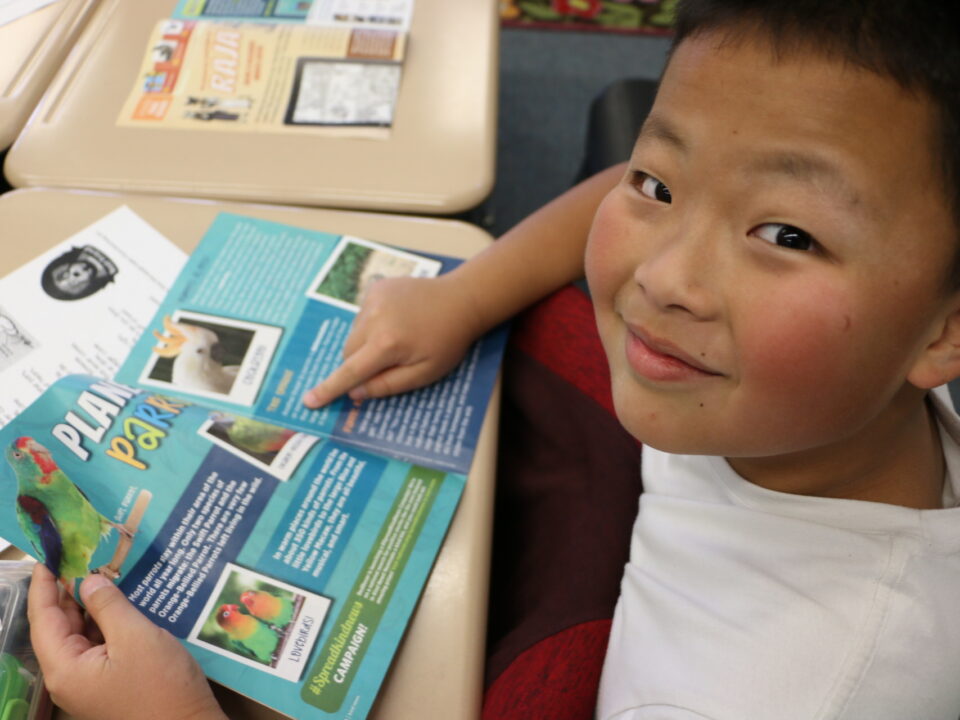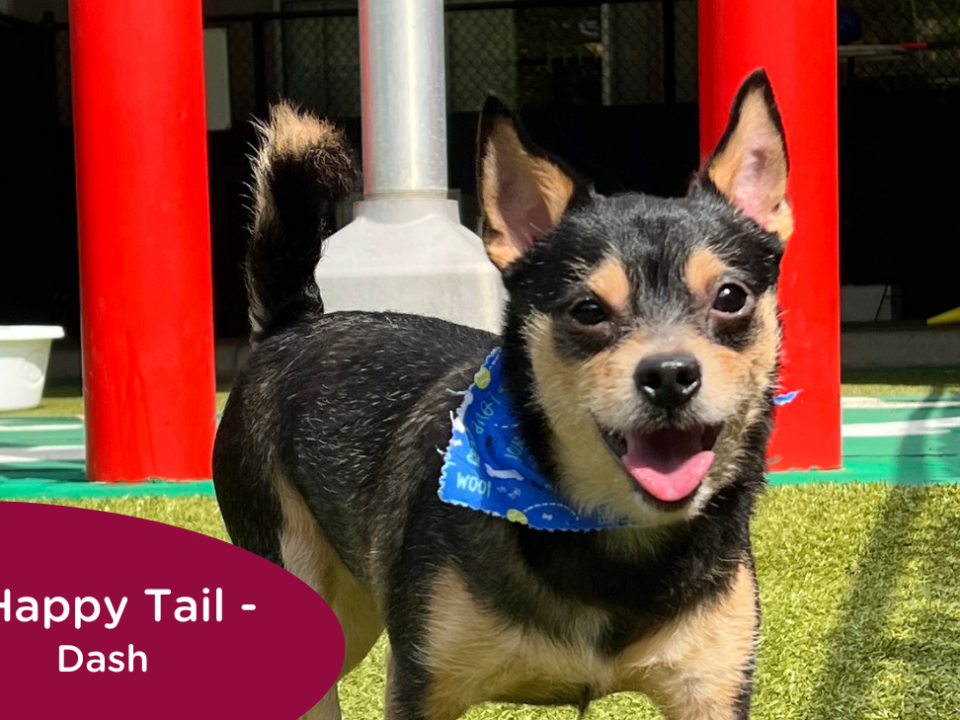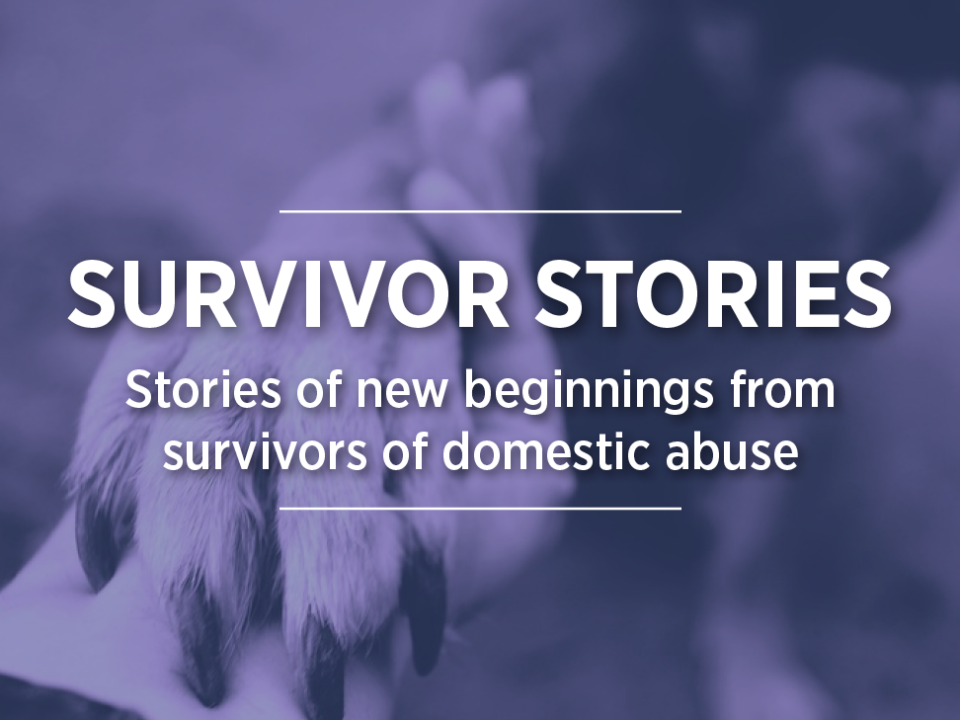Helping Detroit dogs stay safe with their families
May 8th, 2023
By Devon Krusko, Field Services and Community Programs Manager
 In April, our RedRover Responders team returned to Detroit, Michigan, for a second time to assist Dog Aide, a local organization focused on community outreach to keep pets with their people. In the city, there are many areas that remain a resource desert for both animals and humans, which can mean a lack of grocery stores, veterinary hospitals, and other services. As our colleagues at C.A.R.E. so eloquently stated: The same issues that impact humans impact the companion animals who live with them. Financial, housing, and food insecurity affect everyone at home- animals included. The city of Detroit remains one of the most segregated in the country. There are significant racial disparities in owning homes, income gaps, and unemployment rates. For example, the median net worth of White households in Michigan was $91,000, compared to only $4,000 for households of color, a gap of $87,000.
In April, our RedRover Responders team returned to Detroit, Michigan, for a second time to assist Dog Aide, a local organization focused on community outreach to keep pets with their people. In the city, there are many areas that remain a resource desert for both animals and humans, which can mean a lack of grocery stores, veterinary hospitals, and other services. As our colleagues at C.A.R.E. so eloquently stated: The same issues that impact humans impact the companion animals who live with them. Financial, housing, and food insecurity affect everyone at home- animals included. The city of Detroit remains one of the most segregated in the country. There are significant racial disparities in owning homes, income gaps, and unemployment rates. For example, the median net worth of White households in Michigan was $91,000, compared to only $4,000 for households of color, a gap of $87,000.
Dog Aide’s mission is to provide assistance to dog guardians that are experiencing financial hardship. Their program is designed to provide dog food, daily care items, education on pet care, and assistance with free spay/neuter. They also help to build safe enclosures for outdoor dogs, as many dogs in the city live chained or tethered outside, and RedRover and Dog Aide have partnered to put additional funds and volunteers towards this life-saving work. By life-saving I mean: the city shelters and local rescue groups cannot take in all of the dogs that live outside, there’s simply not enough room.
Whenever RedRover supports Unchaining programs we often receive emails and social media concerns surrounding outdoor dogs, opinions about how folks who have these dogs shouldn’t have pets, and ultimately feedback that pets are family. In truth, that phrase and ideology is subjective. Are dogs only family if they sleep in the bed? If they’re allowed on the couch? What about if they’re crated all day? What about globally where 70% of dogs (estimated at > 700 million to ~ 1 billion!) are free roaming? Where’s the line of what “family” is and who am I, or you, to determine that? It’s an absolute fact that I’ve met many beyond grateful folks whose dogs live outside and they consider them family. And I get it. I’ve worked in animal welfare for 15 years: through sanctuary work and animal sheltering, to animal control and emergency response– I’ve dealt out my fair share of judgements – and honestly? Those judgments separated a lot of human-animal bonds, and quite frankly, I was wrong.
We must remember, and it’s vital that we do, that your (and my) lived experience is not everyone else’s. In Detroit it’s very common to have an outside dog. Dogs may not be allowed in rental housing or there are size and breed restrictions (also inherently racist). It’s not easy or affordable for folks to just pick up and move. Culturally, families may have grown up with dogs being outside only, or some have dogs for protection. Others take in stray or free-roaming dogs so they aren’t loose in the streets and the most affordable way to keep them safe is to have them tether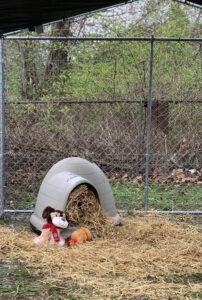 ed in the yard. While many of us would prefer that dogs be indoors for a variety of reasons, building relationships, establishing trust, and offering resources is rooted in harm-reduction theory and improving quality of life– and that’s what this program is about, not imposing our personal ideologies.
ed in the yard. While many of us would prefer that dogs be indoors for a variety of reasons, building relationships, establishing trust, and offering resources is rooted in harm-reduction theory and improving quality of life– and that’s what this program is about, not imposing our personal ideologies.
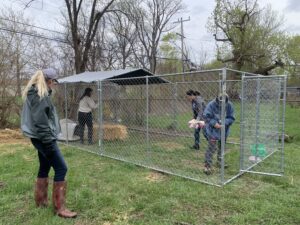 The mindset that one should not have a pet because they can’t “afford” one or take care of them in a particularly (usually privileged) way doesn’t mean that folks don’t deserve the companionship of a pet and that they aren’t loved. The reality is that 19 million pets live in poverty with their people, and that’s a systems problem, not a human one.
The mindset that one should not have a pet because they can’t “afford” one or take care of them in a particularly (usually privileged) way doesn’t mean that folks don’t deserve the companionship of a pet and that they aren’t loved. The reality is that 19 million pets live in poverty with their people, and that’s a systems problem, not a human one.
I look forward (impatiently!) to every single unchaining deployment that we do and the partnerships and relationships that we build. I want to do and give more – always! I have been honored and humbled to meet so many families experiencing inequity. People full of heart, kindness, and so grateful for help. Strangers who have wrapped me up in hugs while crying, worked beside me to put up their dog’s enclosure, FaceTimed their friends to show what they’d been gifted, made me a snack, and texted me well wishes long after I’ve left. For dogs like Mamacita and Shadow, just two of the 11 dogs who received new enclosures on this deployment, and their families, this work is very much life-changing. It’s about empathy, compassion and love, and yes, it’s about family.
References
https://www.nature.com/articles/s41598-020-75828-6
https://www.newdetroit.org/racial-equity-highlights/
https://www.humanesociety.org/sites/default/files/docs/American%20University%20PFL%20brief.pdf

